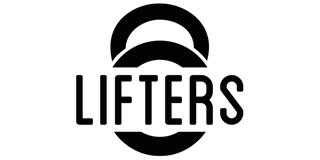Make 2022 your strongest year yet
The New Year is the perfect time to turn over a new leaf and set goals for the year ahead. These goals can be related to your business, your family or your personal fitness and should be realistic and achievable. However, studies show that over half of all New Year's resolutions are not carried out. Therefore, it is important for you to choose the right resolutions and also properly plan how to achieve them. We as the Lifters team would like to accompany you on your athletic journey this year and grow together with you.
So let's take a closer look at how you're going to rock 2022 and make it the most successful year ever.
Set yourself SMART Goals
The best way to set goals that you can stick to is to make sure they are SMART. First mentioned in the 1981 Management Review Journal, SMART goals are a structure for setting goals that are specific, measurable, achievable, relevant, and timely. Although they were originally developed for businesses, SMART goals can also be very successful in moving you toward your set goal and progress in your development as a lifter. Let's look at this in detail and make a plan to make the coming year a complete success for you:
Specific - To make sure you know your goal, it's important to be more specific with your goals, rather than setting vague goals that are too big for you to keep. For example, instead of simply saying you want to lose weight, be more specific. Think about exactly how much weight you want to lose and in what time frame. That way, you're more likely to stay on track. At the same time, it's easier to measure your goal.
For example, if you want to improve your strength, it's not specific enough to say "I want to get stronger". Set specific goals such as "I want to squat, snatch, bench X kilos in 2022...". You will find great fulfillment in actually achieving such a goal. Make an action plan and successfully plan your achievable goals.
What goals can you set for yourself in 2022? Find a Goal Buddy with whom you can sign up for a competition, for example, for which you can prepare.
Measurable - If your goal is about fitness, it is important that the goals are measurable and come with numbers or data so that you can track your progress. Whether it's losing a certain amount of weight or increasing your strength in the example above, it's very important to document your progress. Get a training diary and record your progress. Visualizing your improvement this way will bring you fun in achieving your goals and the process. Just like the old saying "the journey is the destination".
How can you make sure you're measuring your progress and the path to your goal?
Achievable - When you set goals, it's important that they are realistic and that you can achieve them. While it's good to challenge yourself, if the goal is so unattainable that it's unlikely you'll reach it, you probably won't even try. So instead of going from "barely running" to "running a marathon," break your goal into manageable segments, such as running three additional miles each month. That way, you can increase your mileage without being deterred by a goal that's too big.
Increasing your backsquat by 200 kilos also creates a lot of pressure and is difficult to implement. A constant increase planned over a long period of time will bring you to your goal effortlessly and with joy. For example, keep the following in mind: If you increase your weight by one kilo every week, you will have increased your weight by 52 kilos by the end of the year. Trust the process and be realistic.
What is a goal for you, given your circumstances, that challenges, motivates, and brings you fulfillment and is realistic at the same time?
Relevant - If you choose a goal that is relevant to your life and will make a positive change, you are more likely to stick to it. You should formulate your goal from a positive attitude rather than a self-critical attitude. Think about what positive changes can improve your life and set those goals.
What area needs the most attention in 2022. What area of your sport or life have you always wanted to improve to move you forward?
Time-dependent - You need to make sure not only that your goals are achievable, but also that they can be achieved within the time frame you set. When you set your goals, you should set a time frame in which you want them to be achieved. You can also break the goal into smaller, more manageable sections by building smaller time frames. Set micro-goals that bring you closer to the end goal, piece by piece. Celebrate yourself for reaching these small milestones and be proud of your determination.
Of course, we asked our athlete team for you how our strong athletes handle your goal setting to secure your personal goals.
First of all we asked our athlete Lisa Marie Schweizer, who is a role model also for our Lifters team with her willingness to work hard and her sympathetic, authentic manner.
LISA MARIE SCHWEIZER THINKS FROM COMPETITION TO COMPETITION

Our strong athlete Lisa Marie is thus implementing the SMART goal even in your journey as a lifter, and incredibly successful, because your path had already brought you to the Olympics last year, which should probably be a goal of every competitive athlete.
We asked the same question to Maik Pister, competitive athlete in powerlifting and strength coach.
MAIK THINKS IN STAGES

Last but not least, we asked the same question to Leon Huffer, our elite CrossFit athlete. Leon always has his big goal in mind, but divides his path into several smaller goals.

It is important to define the milestones as realistically achievable intermediate goals, otherwise the motivation is quickly lost.
Basically, you have to be patient and not too strict with yourself and the achievement of the milestones. It is better to check again after some time whether everything is still within the framework / running according to plan and if not, adjust the plan.
Nothing is set in stone. You should always be aware that it is absolutely ok to adjust plans to reach the end goal."
Fazit: What do all these answers have in common?
Consciously or unconsciously, our athletes implement SMART goal setting and work hard on small achievable goals that make significant progress at the end of the year!In what time periods can you measure your progress, what micro goals do you set and WHEN ?
Write your goals down
Once you have an idea of what you want your goals to be, it's important to write them down. This will confirm them and make sure you don't just forget about them in a few weeks. If you post them somewhere in your home, you'll be constantly reminded of them, which makes it more likely that you'll stick to them.
Plane your day the day before
One of the best ways to make sure you achieve your goals throughout the year is to take about ten minutes the night before each day to plan your progress and prepare for the next day. This will help you prepare for whatever the day has in store for you, and this will help you achieve your goals. Planning the day before can include getting your workout clothes ready to increase the likelihood of you going to the gym, or preparing your meals to stick to your specific nutrition plan.
Do it until it becomes a routine
When something becomes a routine, we find it much easier to do it every day because we are used to doing it from our routine. At the very beginning of the year, try to stick to your routine until it becomes a habit. Studies have shown that it takes about 21 days for a routine to become a habit. So if you stick to your goals in the first month of the year, you're more likely to succeed. After that time, you'll find it easier to stick to your new goals and make positive changes.
Evaluate your progress
As the year progresses, it's important to evaluate your progress to see which goals you've accomplished and which ones you still need to work on. Not only does this ensure that you stay focused on your goals, but it also gives you a boost when you've accomplished some of them. When it comes to your fitness goals, a great way to evaluate your progress is by recording the weight you lift or taking photos to see the changes in your body. Reviewing your fitness goals monthly will help you determine if your current routine is working or if you need to make additional changes to get the results you want.
Don't give up
Even if you don't exactly reach your goals, it's not the end of the world. Failure is a part of life. But it doesn't mean that your journey is over. With every "failure" you learn something and grow from it. If you fail, it's okay to try again, even if it's not the beginning of the year. Use the beginning of the month or week to start working on your goals again instead of waiting until next year.


























